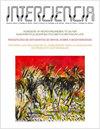在突厥共和国和障碍中寻找共同字母
IF 0.4
4区 综合性期刊
Q4 ECOLOGY
引用次数: 0
摘要
土耳其目前的人口超过2.5亿,在19世纪和20世纪经历了重大的政治和地理分裂,特别是东西方分裂。战争、占领和文化吸收都造成了这种分裂。随着时间的推移,他们的字母表改变了好几次,他们的语言也遇到了困难。结果,他们之间的沟通和联系下降到他们似乎无法有效沟通、达成一致或合作的程度。在苏联时代,土耳其世界和土耳其之间的现有联系大多被切断。然而,随着苏联的解体和随后新的突厥共和国宣布独立,这些联系很快得到恢复。今天,土耳其各国在各个领域密切合作,参与重要的联合项目,特别是通过TIKA(土耳其合作与协调机构)等组织。一项值得注意的倡议是寻求“通用字母表”,旨在促进土耳其语社区之间更好的沟通和团结本文章由计算机程序翻译,如有差异,请以英文原文为准。
The Search for a Common Alphabet in the Turkic Republics and Obstacles
The Turkish nation, with a current population exceeding 250 million, experienced significant political and geographical fragmentation in the 19th and 20th centuries, particularly in the East-West divide. Warfare, occupation, and cultural absorption all contributed to this fragmentation. Their alphabet changed several times over time, and their language encountered difficulties. As a result, their communication, and ties with one another degraded to the point that they appeared unable to effectively communicate, agree, or collaborate. The existing links between the Turkish World and Turkey were mostly severed during the Soviet era. However, with the fall of the Soviet Union and the subsequent declarations of independence by new Turkic Republics, these links were quickly restored. Today, Turkish states cooperate closely in various fields, engaging in significant joint projects, particularly through organizations like TIKA (Turkish Cooperation and Coordination Agency). One notable initiative is the quest for a "Common Alphabet," aiming to foster better communication and unity among Turkish-speaking communities
求助全文
通过发布文献求助,成功后即可免费获取论文全文。
去求助
来源期刊

Interciencia
综合性期刊-生态学
CiteScore
0.80
自引率
25.00%
发文量
1
审稿时长
4-8 weeks
期刊介绍:
Interciencia is the monthly multidisciplinary publication of the INTERCIENCIA Association. It is dedicated to stimulate scientific research, its humanitarian use and the study of its social context, specially in Latin America and the Caribbean and to promote communication between the scientific and technological communities of the Americas.
Interciencia has been published uninterruptedly since 1976. Its Founding Director, Marcel Roche (endocrinologist and sociologist of science) was editor until 2008, and thereafter Miguel Laufer (neurobiologist) has been in charge. It has been included since 1978 in the Science Citation Index and other international indexes, and since 2008 it maintains an open access electronic version with material from 2005 onwards.
The priority areas of the journal, without exclusion of other areas, are Agronomy, Arid Lands, Food and Nutrition, Biotechnology, Ecology and Environment, Energy, Innovation and Technology Transfer, Marine Resources, Non-renewable Resources, Science Education, Science Policy, Study and Sociology of Science, and Tropical Forests.
Interciencia publishes in Spanish, Portuguese and English research and review articles, communications and essays, all of which are subjected to peer review. Additionally, it includes non-refereed sections such as Editorial, Letters to the Editor, Open Town Hall, Book Reviews and Upcoming Events.
All the material submitted to the journal for publication and accepted by the Editorial Committee in view of its quality and pertinence is subjected to review by peer specialists in the corresponding fields of knowledge. Neither the INTERCIENCIA Association, nor the journal or the institutions to which the authors belong carry responsibility for the contents. Signing authors are responsible for the material published under their names.
 求助内容:
求助内容: 应助结果提醒方式:
应助结果提醒方式:


